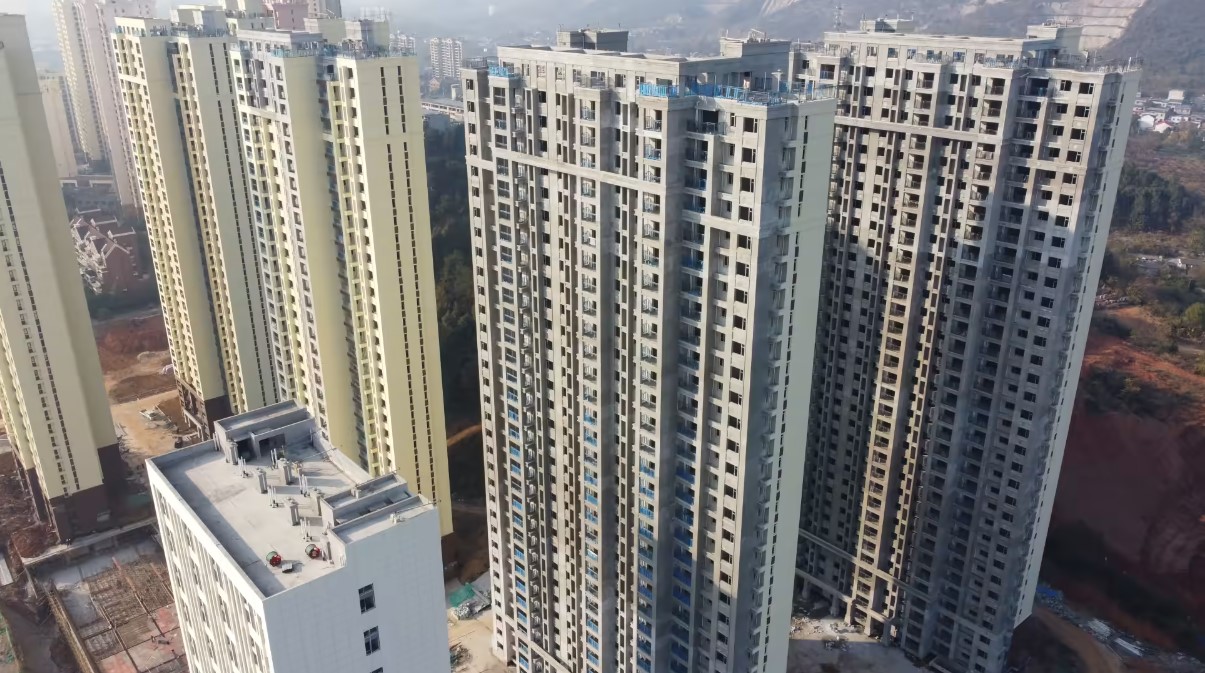China’s real estate market is grappling with significant challenges, including a surplus of vacant properties and regulatory changes.
A former official recently remarked that even with China’s vast population of 1.4 billion, it would still be insufficient to occupy all the unoccupied apartments scattered throughout the nation. This statement serves as a rare public critique of China’s property market, which has been in decline since 2021 due to factors such as the default by real estate giant China Evergrande Group and tightened regulations on new borrowing.
Prominent developers like Country Garden Holdings still hover on the brink of default, further dampening the confidence of potential home buyers. The National Bureau of Statistics (NBS) reported that as of the end of August, there were 648 million square meters (7 billion square feet) of unsold residential space, equivalent to approximately 7.2 million homes based on Reuters’ calculations using an average home size of 90 square meters.
Apart from the substantial unsold residential space, there are also unfinished projects due to financial issues and vacant properties held by speculators from the 2016 market boom, which, according to experts, constitute the majority of unused properties. He Keng, an 81-year-old former deputy head of the statistics bureau, noted the wide disparity in estimates of vacant homes, with some experts suggesting there might be enough vacant homes for as many as 3 billion people.
While acknowledging that the estimate of housing surplus for 3 billion people might be excessive, He Keng expressed doubt that China’s population of 1.4 billion could adequately occupy these properties. He shared this perspective during a forum in Dongguan, as reported by the official China News Service. This stance, which questions the vitality of a crucial economic sector, sharply contrasts with the official narrative that touts China’s economy as “resilient.” In a recent press conference, a foreign ministry spokesperson dismissed predictions of China’s economic collapse as mere rhetoric, emphasizing the nation’s economic stability.
(Source: Albee Zhang | Ryan Woo | Jan Harvey | Reuters)









